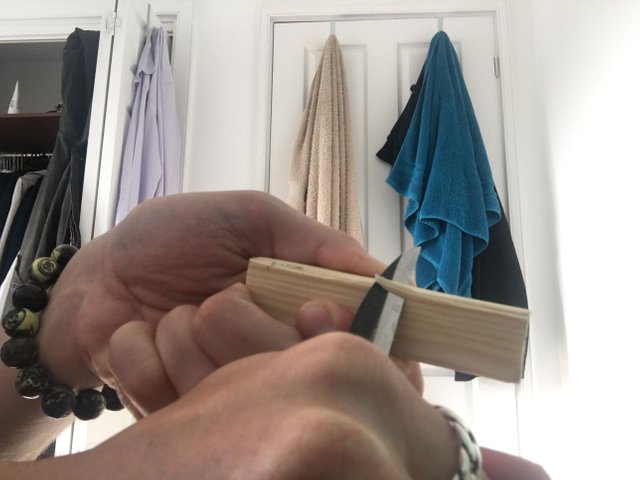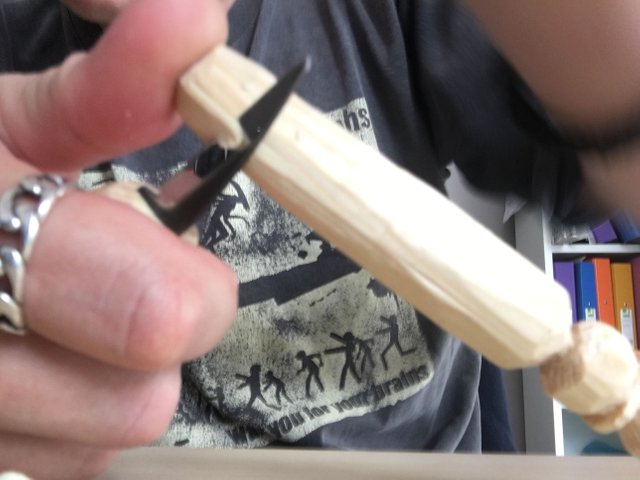Whittling 2: The Basics
Hello Steem,
I'll be doing another post about whittling, discussing whittling techniques and cuts. When doing basic whittling you will use three main cuts, the Straight Cut, the Push Stroke and the Pull Stroke. When using each of these cuts it is best to cut with the grain of the wood, allowing the knife to slide easier, however be aware that after it starts cutting it will become far easier, thus a jerking motion can result if you are not careful. This jerking motion is exactly what you want to avoid when whittling, thus as with most things, control is key.
Straight Cut:
The Straight Cut is used earlier on in a piece in order to reduce the size and shape of the wood in order to get a rough idea of what it will look like. It also has a limited amount of control relative to the other two cuts. This cut is directed away from the body. It can be used rather quickly in order to reduce large pieces of wood to the rough correct size for the project. Never use this cut directed towards someone as it is very rough and quick, likely resulting in injury.

Push Stroke:
The Push Stroke is used later on in a piece to more closely cut towards the correct shape for your desired part. It involves using one hand to hold the knife against your wood. The palm of your second hand holds the wood while it's thumb guides the knife along it's desired path. As this is directed away from body it can again be used rather quickly, but it won't always be convenient to use this cut due to the shape of your part.

Pull Stroke:
Finally the Pull Stroke is used the most in whittling due to it being highly controlled and ideal for small cuts to get detail out of your wood. It is done directed towards the thumb of your whittling hand. This cut is slow and precise, if your knife gets stuck while using this cut use the fingers of your knife hand to drag the knife perpendicular to the wood, in a sawing motion. DO NOT increase the force on the knife until it slides jerks through the wood, this will result in cutting yourself. During this cut it is highly recommended to use thumb protection of some form as it will regularly result in the knife slowly approaching your thumb.

These are the three basic cuts when whittling. Occasionally for very fine details or overhangs you will want to use a gouging technique, this is fine as long as you keep the force you apply quite small.
I'm happy to make posts regarding a large range of topics, from whittling to robotics. So let me know if there is anything in particular you are interested in!
thanks for the comment on one of my posts man. I think your channel is undervalued!
I love playing chess. This post is crazy! Steem should totally have chat options and maybe a chess option too. Very universal game
Thanks Kevbot. It would be awesome to see those kinds of options on steemit!